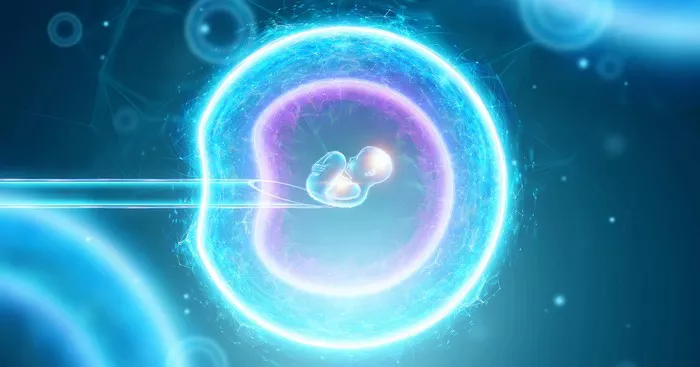Male fertility assessment plays a pivotal role in understanding and addressing reproductive health concerns in men. It involves a series of evaluations and tests aimed at determining the quality and quantity of sperm, as well as identifying any underlying medical conditions that may impact fertility. While fertility assessments are often associated with women, it is equally important for men to undergo evaluation, as male factors contribute to approximately 40-50% of infertility cases. Understanding the process and what it entails can empower individuals and couples seeking to conceive to make informed decisions regarding their reproductive health.
Importance of Comprehensive Medical History and Physical Examination
A comprehensive medical history and physical examination are fundamental components of a male fertility assessment. Medical history provides valuable insights into past illnesses, surgeries, medications, lifestyle factors, and reproductive health. Additionally, it helps healthcare providers identify potential risk factors or underlying conditions that may affect fertility, such as hormonal imbalances, genetic disorders, or environmental exposures. A thorough physical examination may reveal anatomical abnormalities, such as undescended testicles or varicoceles, which can impact sperm production or function. By gathering this information, healthcare providers can tailor further diagnostic testing and treatment recommendations to address individual needs effectively.
The Significance of Semen Analysis
Central to male fertility assessment is the semen analysis, a diagnostic test that evaluates various parameters of sperm health. During semen analysis, a semen sample is collected and analyzed for sperm count, motility (ability to move), morphology (shape and size of sperm), and other characteristics. This test provides critical information about sperm quality and quantity, offering insights into potential fertility issues. A normal semen analysis does not guarantee fertility, but abnormal results may indicate underlying problems, such as low sperm count, poor motility, or abnormal morphology, which can affect the ability to conceive naturally.
Additional Diagnostic Tests
In some cases, additional diagnostic tests may be necessary to further evaluate male fertility. Hormonal evaluations, including tests for testosterone, follicle-stimulating hormone (FSH), luteinizing hormone (LH), and prolactin, help assess hormonal balance and function, which are essential for sperm production. Genetic testing may also be recommended to identify genetic abnormalities that can impact fertility or increase the risk of passing on genetic conditions to offspring. These tests provide valuable information for healthcare providers to develop personalized treatment plans and genetic counseling, if needed.
Factors Affecting Male Fertility
Several factors can affect male fertility, ranging from medical conditions to lifestyle choices and environmental exposures. Chronic health conditions, such as diabetes, obesity, and hypertension, can disrupt hormonal balance and impair sperm production. Environmental factors, including exposure to toxins, pesticides, radiation, and excessive heat, may also affect sperm quality and function. Lifestyle choices, such as tobacco use, excessive alcohol consumption, illicit drug use, and poor nutrition, can negatively impact fertility. Understanding these factors and addressing modifiable risk factors can improve overall reproductive health and increase the likelihood of conception.
Treatment and Management Strategies
Following a comprehensive fertility assessment, treatment options may vary depending on the underlying cause of infertility and individual preferences. Lifestyle modifications, such as maintaining a healthy weight, quitting smoking, reducing alcohol intake, and adopting a balanced diet, can positively influence fertility outcomes. Medications, such as hormonal therapies or antioxidants, may be prescribed to address hormonal imbalances or improve sperm quality. Surgical interventions, such as varicocelectomy to repair varicoceles or vasectomy reversal, may be recommended in specific cases. For couples facing severe male infertility or other reproductive challenges, assisted reproductive technologies (ART), including intrauterine insemination (IUI) or in vitro fertilization (IVF) with intracytoplasmic sperm injection (ICSI), offer alternative pathways to parenthood.
Emotional Impact and Supportive Resources
It is essential to acknowledge the emotional impact of fertility assessments on individuals and couples. Facing fertility challenges can evoke a range of emotions, including stress, anxiety, grief, and frustration. It is normal to experience these feelings, and seeking emotional support can be beneficial. Counseling, support groups, and online resources provide valuable support networks for individuals navigating fertility issues. Open communication with partners, family members, and healthcare providers can also facilitate coping mechanisms and enhance resilience throughout the fertility journey. Remember, you are not alone, and there are resources available to help you navigate this emotional terrain with compassion and understanding.
Conclusion
In conclusion, male fertility assessment is a crucial step in evaluating reproductive health and identifying potential barriers to conception. By understanding the process, undergoing comprehensive evaluations, and exploring treatment options, individuals and couples can take proactive steps towards achieving their family-building goals. With the support of healthcare providers and emotional resources, navigating fertility challenges becomes a journey of empowerment and resilience.
























